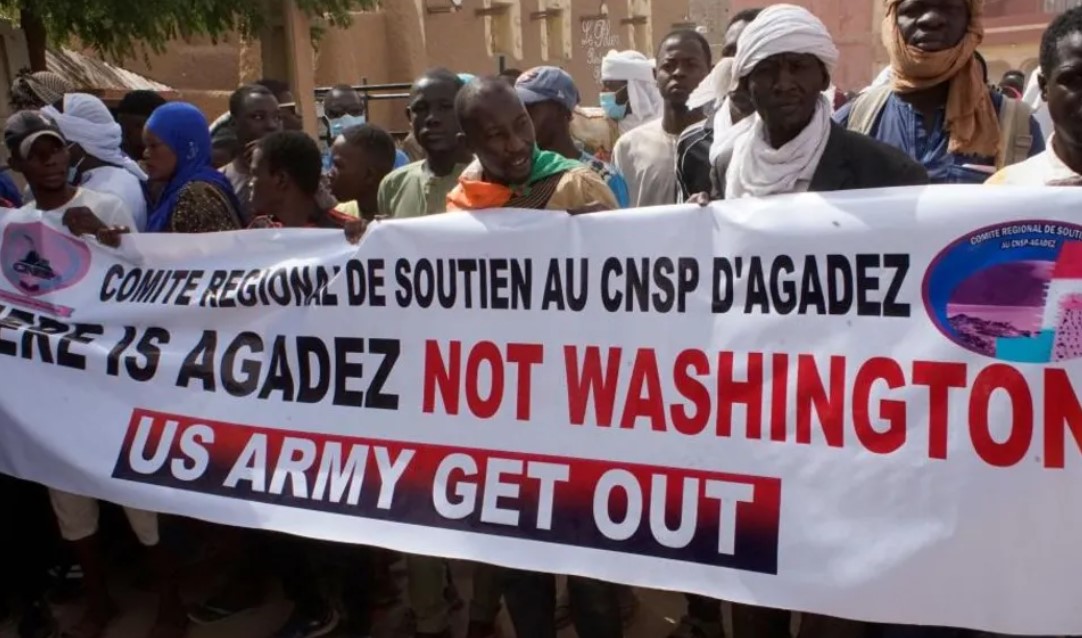Following Niger’s decision to expel American troops, Russia has sent military personnel to the same airbase that still houses a small contingent of US forces. This development comes amid heightened tensions between Washington and Moscow due to the ongoing war in Ukraine.
Niger’s Request and US Withdrawal
In July 2023, a coup d’état in Niger led to the new military junta demanding the withdrawal of all US troops stationed in the country. The US, which had roughly 1,000 troops stationed at two airbases, began negotiations for a phased withdrawal.
Russian Presence Emerges
News of the Russian deployment to Niger’s Airbase 101, located near Niamey’s international airport, surfaced in early May 2024. While the exact number of Russians remains unclear, officials report they are stationed in a separate area from the remaining US troops. This proximity raises concerns, considering the strained relationship between the two superpowers.
US Response and Potential Risks
US Secretary of Defense Lloyd Austin acknowledged the situation, characterizing it as “not ideal but manageable in the short term.” American officials have stressed that the Russians lack access to US personnel and equipment.
However, the presence of both forces on the same base introduces the possibility of misunderstandings or miscalculations that could escalate tensions.
Uncertain Future
The long-term implications of this situation remain unclear. The US withdrawal from Niger is still ongoing, and the role of the remaining Russian troops is uncertain.
This development highlights the increasing competition for influence in Africa between the US and Russia, with the potential for further friction in the future.
Potential Outcomes and Regional Implications
The deployment of Russian troops to Niger’s Airbase 101 presents several potential outcomes and raises concerns for the wider Sahel region:
- Increased Tensions: The already strained US-Russia relationship could further deteriorate due to their close proximity at the airbase. Any incidents, even unintentional, could lead to a military escalation.
- Competition for Influence: Russia’s move can be seen as an attempt to expand its military footprint in Africa, challenging US dominance in the region. This competition could lead to destabilization as both powers vie for influence with regional governments.
- Impact on Counterterrorism Efforts: Both the US and Russia have been involved in counterterrorism operations in the Sahel. The presence of both forces at the airbase could create confusion and potentially hinder these efforts.
- Uncertainty for Niger: Niger’s request for US withdrawal may have backfired. The presence of Russian troops could be seen as a less desirable alternative, potentially limiting Niger’s options and increasing its dependence on Russia.
International Reactions and the Path Forward
The international community is likely to closely monitor the situation in Niger. Here are some potential reactions:
- Calls for De-escalation: The UN and other international bodies may urge both US and Russia to de-escalate tensions and ensure clear communication channels are established to avoid misunderstandings.
- Increased Scrutiny of Russian Activities: Western allies of the US may increase their scrutiny of Russian activities in Africa, raising concerns about their motives and potential human rights abuses.
- Diplomatic Efforts: Efforts to find a diplomatic solution to the situation in Niger and the broader Sahel region will likely intensify. This could involve negotiations with the Nigerien government, as well as regional powers, to address security concerns and promote stability.
The path forward in this situation requires careful diplomacy and clear communication between all parties involved. De-escalating tensions, ensuring transparency in military activities, and prioritizing regional stability through continued cooperation in counterterrorism efforts are crucial for the future of Niger and the Sahel.








